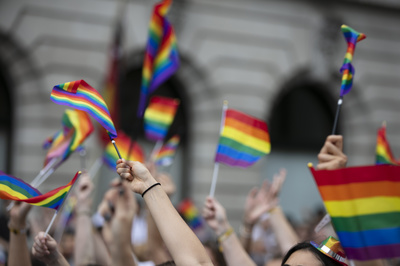 Overview: “Conversion therapy,” sometimes called “reparative therapy,” is abusive towards LGBTQ people and increasingly banned by state laws. New research by an Australian study finds that complex trauma emerges due to attempts to force a separation between personal spiritual belief and gender and sexual identity.
Overview: “Conversion therapy,” sometimes called “reparative therapy,” is abusive towards LGBTQ people and increasingly banned by state laws. New research by an Australian study finds that complex trauma emerges due to attempts to force a separation between personal spiritual belief and gender and sexual identity.
What Is “Conversion Therapy?”
“Conversion therapy” is a practice claimed to “convert” LGBTQ people into cisgender heterosexuals. Despite the name, it has never been accepted as a mental health practice and is generally based on religious ideas. In fact, it has been explicitly rejected by every major American medical and psychiatric association, as well as major school counseling groups and has seen increasing opposition by major religious figures as well.
An overview of studies performed by Cornell University researchers found that of 47 studies surveyed, only one found any reports that it was effective without harm, and that study has serious flaws. Another study making similar claims was retracted a decade later by the author, who also acknowledged serious flaws.
Overwhelmingly, reports about “conversion therapy” have shown it to be harmful to mental health. One study found that victims of the practice were eight times more likely to attempt suicide, six times more likely to report severe depression, three times more likely to have substance dependency concerns, and more likely to engage in risky sexual practices. As LGBTQ people already have elevated rates of depression, anxiety, substance dependency, and suicidal thoughts, this practice can put that community, particularly younger members, at serious risk.
What Are The Long-Term Effects Of “Conversion Therapy?”
Unfortunately, while the practice is increasingly banned, it’s estimated that up to 16,000 LGBTQ youth a year in the U.S. alone will face some form of attempt to change their sexuality. In the report Healing Spiritual Harms, Australian researchers had in-depth sessions with 35 survivors and found serious long-term harm.
Here are some of their findings:
- Many had been told their spiritual practice and gender identity or sexuality were not compatible and felt trapped in a binary between a source of moral support and who they were as people.
- Often, they found mental health professionals and fellow LGBTQ people were dismissive of their faith, reinforcing a sense they could have one, but not both. This including being pushed by their practitioner to “come out” to friends and family before they were ready.
- Uninformed mental health professionals tended to use unhelpful points of reference, such as depictions of conversion therapy in pop culture.
- There was also a common belief that “this doesn’t happen here,” that somehow the practice was uniquely American or regional.

The study reinforces that we need to meet people where they are emotionally and that we all need to be more informed about the harms of “conversion therapy.”
How Harris House Can Help
At Harris House, we understood the struggles and recovery needs of LGBTQ individuals. Our treatment programs are designed to keep the specific needs of this population in mind when making treatment decisions. To learn more about Harris House and our commitment to treating the individual needs of each person who comes to us for help, contact us.








